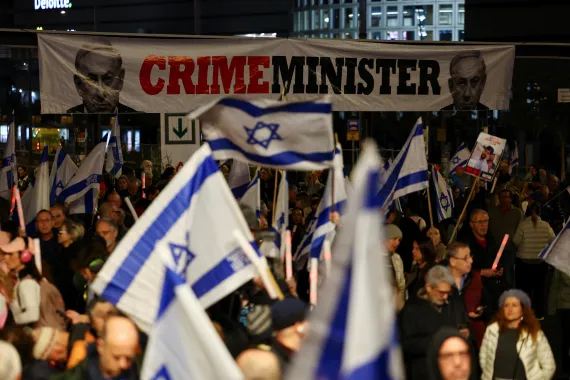New Debate Over Gaza Ceasefire: Netanyahu's Political Future Uncertain
Israeli Prime Minister Benjamin Netanyahu has finally agreed to a ceasefire in Gaza. After 15 months of conflict, this decision has sparked new debates in the political arena. His cabinet approved the agreement on Friday, which involves the exchange of prisoners and war captives, the gradual withdrawal of Israeli forces from Gaza, and the end of the war. However, this decision may place Netanyahu in opposition with the far-right wing of his own government.
New Debate Over Gaza Ceasefire: Netanyahu's Political Future Uncertain
New Debate Over Gaza Ceasefire: Netanyahu's Political Future Uncertain
Israeli Prime Minister Benjamin Netanyahu has finally agreed to a ceasefire in Gaza. After 15 months of conflict, this decision has sparked new debates in the political arena. His cabinet approved the agreement on Friday, which involves the exchange of prisoners and war captives, the gradual withdrawal of Israeli forces from Gaza, and the end of the war. However, this decision may place Netanyahu in opposition with the far-right wing of his own government.
Netanyahu's hardline security minister, Itamar Ben-Gvir, has labeled the agreement as "dangerous" and threatened to leave the government if the deal goes into effect. However, this threat is not enough to break Netanyahu's government, as he relies on the support of his far-right allies, such as Bezalel Smotrich and his Religious Zionism party. Smotrich has supported the release of Israeli captives as part of the first phase, but his party has announced that they will leave the government if the ceasefire is extended.
The timing of the ceasefire coincides with the day before the inauguration of U.S. President-elect Donald Trump. Israeli right-wing politicians have long viewed Trump as an ally, but Trump has emphasized the ceasefire, which has put additional pressure on Netanyahu. International crisis expert Mayrav Joncjin believes that this decision may provide Netanyahu with more freedom to act in the West Bank.
Netanyahu has always been skilled at understanding the pulse of Israeli public opinion. Recent polls indicate that the release of captives and the end of the war through the ceasefire is acceptable to many. Key allies in his government, such as ultra-Orthodox religious groups, support the ceasefire.
However, analysts say that the war has created deep scars in Israeli society. The devastation of 15 months of fighting and international criticism has forced Israel to reconsider its position.
Israel's military operations in Gaza have been labeled as "genocide" by international human rights organizations. As a result of this war, not only Palestinians but also Israeli society has seen a deterioration in humanitarian values. Dr. Guy Shalev, Executive Director of "Physicians for Human Rights Israel," stated, "The brutality of this war has damaged the mutual sense of responsibility among the Israeli people. The devaluation of Palestinian life, which was already present, has deepened."
Although the ceasefire may boost Netanyahu's popularity somewhat, analysts suggest that the divisions within his right-wing coalition and the socioeconomic impact of the war may lead him into a new political crisis. Despite the ceasefire, Israel's long-term stability remains at risk.










